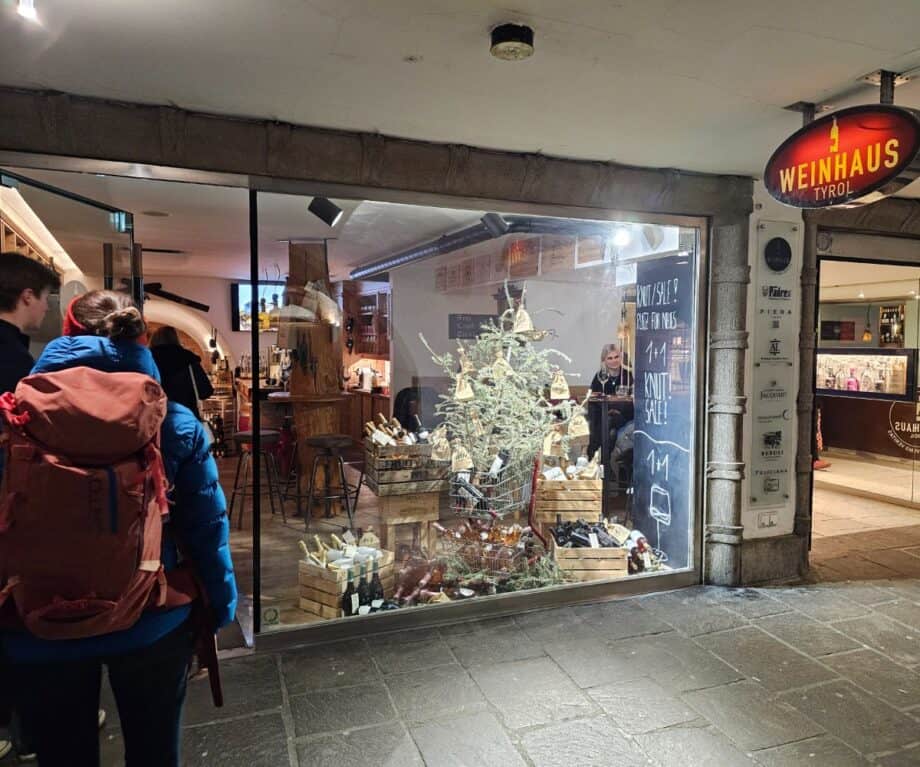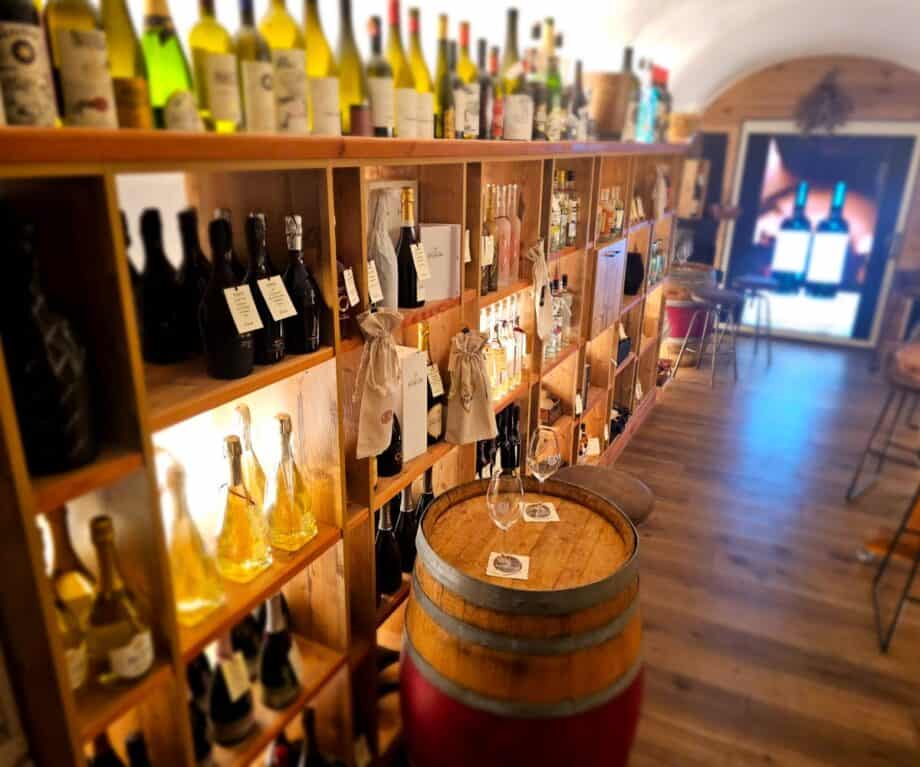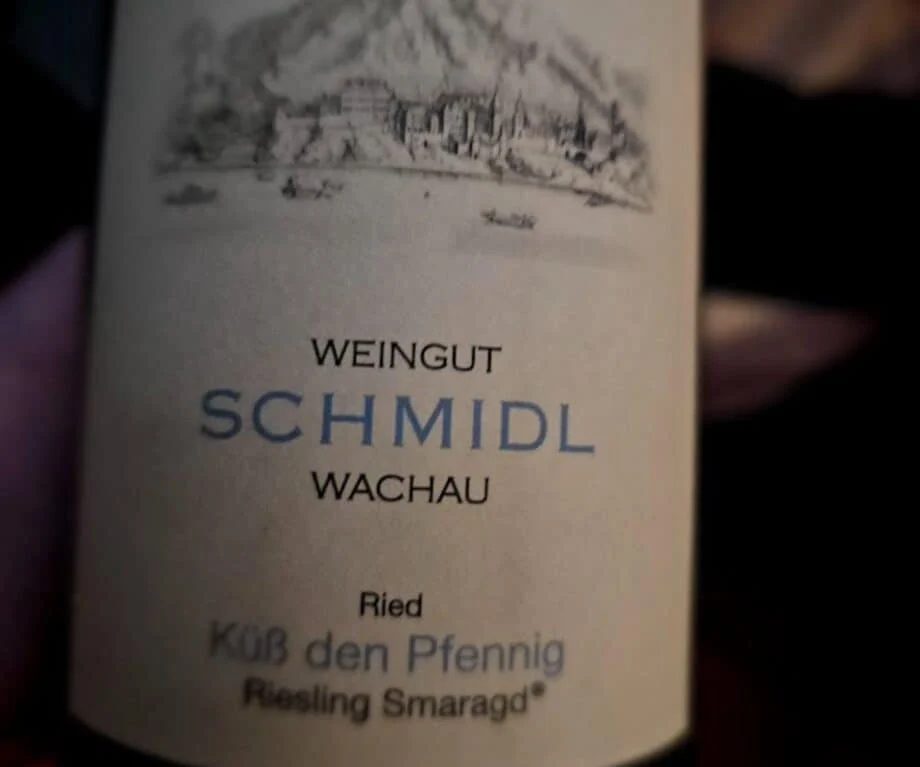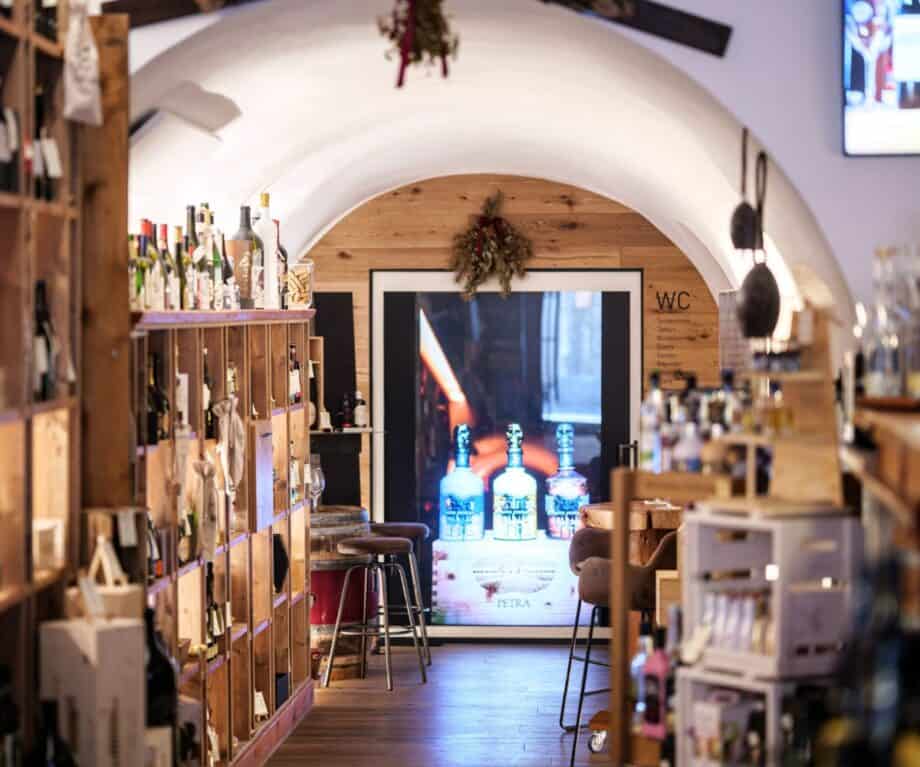Review: Weinhaus Tyrol, Innsbruck, Tyrol, Austria

Hidden in plain sight in Innsbruck, Weinhaus Tyrol is known by locals but still flies under the radar of most tourists. It’s the kind of place you dream of stumbling upon, and offers an intimate secret food and wine tasting experience.

Inside, there is an extensive display of wines, a bar and occasional barrels that are used as changing tables to enjoy a drink or two.


At the end of this tunnel and down a few steps, is a small converted basement. With its vaulted ceilings, half-cast stone walls and dimly lit ambience, it exudes rustic charm and delights in a variety of minimalist details.


Now I don’t claim to be a wine connoisseur, but I do enjoy a glass or two, and here we wanted a treat – this wasn’t just dinner with a few glasses of wine, but an invitation to slow down. , smell and immerse yourself in the culinary soul of Tyrol.
A member of staff introduces us to our first wine – the Schmidl Grüner Veltliner Steinfeder Ried Alte Point. Schmidl Winery is a traditional family-run winery in Wachau, known for its respect for nature and pursuit of the highest quality. The family cultivates its vineyards organically and relies on sustainable farming methods to reflect Wachau’s unique terroir. Light and fresh with notes of green apple, citrus, and a hint of white pepper.


A spread of local cheeses, a selection of perfectly cured meats and a basket of bread are brought to enjoy our wine with, arranged in a rustic elegance that speaks of tradition rather than show, but it was delicious nonetheless.


Next up is Müller Thurgau (a cross between a Riesling and a Madeleine Royale) from Weinhof Tangl, one of only 13 official wineries in Tyrol. It is fruity and has aromas of nutmeg, pear and fresh herbs. The climate of Tyrol is very different from that of its neighbor to the south. Despite having the same number of hours of sunshine as most cities in South Tyrol, the region experiences many frosty nights, which greatly influence the ripening of the grapes and the structure of the wine. Weinhof Tangl has been passionately family-run for generations and focuses on the harmonious combination of tradition and innovation.


Our third white wine of the evening is one from the Schmidl winery – Schmidl Riesling Smaragd Küss den Pfennig. Powerful and complex, it has aromas of ripe peach, apricot and good minerality. Schmidl Winery is known for its excellent Rieslings, which reflect the unique terroir of the Wachau. The name “Küss den Pfennig” (“Kiss the Penny”) refers to centuries of tradition and the great value the family places on every detail of wine production.


At this point, the cheese bowl – decorated with grapes, figs and walnuts – provides a welcome balance, helping to complement the wine and absorb the alcohol. Tyrol is known for its unique dairy products, especially cheeses such as Tiroler Bergkäse. The highest quality is due to cows grazing on clean mountain pastures, which makes the milk sweeter.


Our next wine comes from the only estate located in a European capital – the Edelmose winery in Vienna with a history of over 600 years. Since the Middle Ages, winemaking has been practiced there with great dedication, with historic vineyards located in the hills of the Vienna Woods. The unique location in the heart of a vibrant city creates the terroir and makes Edelmose a true center of Viennese winemaking. Edelmoser Rosé de Vienne is made from Zweigelt and Pinot Noir grapes – fresh and fruity with aromas of red berries, cherry and a hint of floral notes.


Then it’s our first red of the evening with Ernst Zweigelt Deutschkreuz (Zweigelt is an Austrian cross between Blaufränkisch and St. Laurent, known for its fruit and spice driven red wines with soft tannins). Ernst Winery is located in Deutschkreuz, the heart of the Blaufränkisch region of Burgenland, and is known for its red wines. The Ernst family focuses on organic farming, sustainable wine production, and authentic wines that perfectly reflect the region’s terroir. The Seewinkel region is characterized by unique geological conditions and a climate that is very important for viticulture. The seasonal drying of salt lakes creates specific soil conditions that give the wines minerality and saltiness. It is bold and spicy with notes of dark cherries, berries and a subtle touch of vanilla.


It seems that there is another wine waiting for us, but now, we are full. Each wine was excellent but what made the experience truly special was the setting and the sense of uniqueness, and – of course – the good company. For anyone visiting Innsbruck, the Weinhaus Tyrol is an absolute must-visit.


Disclosure: Our trip was sponsored by Innsbruck Tourism.
Did you enjoy this article?
Get matching content straight to your inbox.
Please enable JavaScript in your browser to submit the form
Source link




